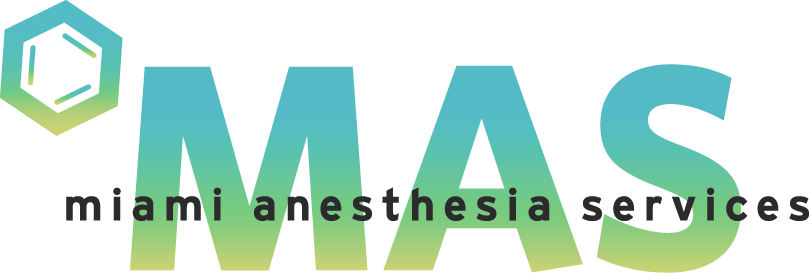Who are Anesthesiologists?
Anesthesiologists are specialized physicians who both provide medical care and administer anesthesia during your surgery. We, MAS doctors, work to ensure the best possible outcome before, during and after your upcoming procedure.
Who are Certified Registered Nurse Anesthetists?
Certified Registered Nurse Anesthetists (CRNA) are nurses who also specialize in administering anesthesia for your surgery. Under the supervision of anesthesiologists, both CRNAs and anesthesiologists work together as a MAS team to provide medical care for your best possible outcome from a procedure.
What do your MAS Anesthesiologist and CRNA do during your procedure?
- Provide for your comfort and safety.
- Manage preexisting medical conditions and problems that may develop during surgery.
- Monitor and control blood pressure, heart rate, breathing and oxygen levels.
- Give medication to control pain.
What are the types of Anesthesia?
- General is similar to a DEEP sleep. During your surgery, you will not feel, see or hear anything.
- Regional (epidural, spinal, nerve blocks) puts part of your body to sleep. We inject drugs around the appropriate nerves to produces numbness. This is often combined with sedation that provides a state of relaxation.
- Sedation increases your comfort and provides relaxation and pain control.
How do your MAS Anesthesiologist and CRNA choose the type of anesthesia to give you?
Your anesthesiologist and CRNA make this decision in consultation with your surgeon. We base this decision on what is needed for your surgery, your medical history and health and your wishes.
Am I able to Eat or Drink before my surgery?
- 4 HOURS BEFORE:
Do NOT eat or drink anything (only SMALL sips of WATER to swallow medicines)
- 4-8 HOURS BEFORE :
May only DRINK CLEAR liquids, such as water, sports drinks, fruit juices WITHOUT pulp, BLACK coffee, CLEAR tea, or carbonated drinks. You may drink up to TWO glasses.
- 8-12 HOURS BEFORE:
May only EAT a SMALL, LIGHT meal *
(toast, jam, cereal, fruit, and CLEAR liquids). Do NOT eat fried or fatty foods.
*Do NOT EAT any food after midnight if your surgeon has placed you on a clear liquid diet or if you are having a procedure involving your stomach or bowels.
What if I Smoke?
We encourage you to stop smoking. It is highly irritating to your lungs and you will have a greater likelihood of coughing post procedure. Visit www.tobaccofreeflorida.com for assistance or ask your primary healthcare provider.
What about Awareness during surgery?
- Intended Awareness Sometimes it is appropriate or necessary for you to be awake or aware. You may have some awareness when brought into the operating room (before the surgery starts) and when waking up from anesthesia (after the procedure is over).
- Unintended Awareness This is not very common. The anesthesiologist and CRNA take many precautions and use advanced monitors to prevent unintended awareness.
What about possible Complications or Side Effects from anesthesia?
Serious complications are rare. Anesthesia is much safer and more effective than ever before.
- Nausea and Vomiting may occur as the result of narcotic pain medicine, certain types of procedures and your own history of nausea or motion sickness. There are several medications available that decrease the incidence. Please inform us if you have a history of nausea and vomiting prior to your procedure.
- Dental injury may be unavoidable. A tooth, cap, or bridge may become chipped or loosened when the anesthesiologist or CRNA is managing your breathing.
- Sore throat is common along with some tongue or lip swelling after surgery.
- Nerve injury that causes permanent loss of sensation or strength in part of the body is rare.
- Back injury from epidurals or spinals is not common. In fact, epidural injections are a common treatment for severe back pain.
- Serious complications like heart or lung failure are most often related to your preexisting health and medical condition. Heart and lung disease, high blood pressure, diabetes, smoking and severe obesity increase the risk of these complications.
We, MAS Anesthesiologists and CRNAs, look forward to meeting and taking care of you. Before your procedure, you will meet your MAS anesthesiologist and/or CRNA to discuss and finalize the best anesthetic plan for you. Your health, safety and comfort are our priorities. As MAS physicians and nurses, we are dedicated to providing you with the highest level of medical care.
As your concierge anesthesia provider, MAS phone line is available 24/7 for any anesthesia related questions or concerns. Please visit our Contact Page for details.

